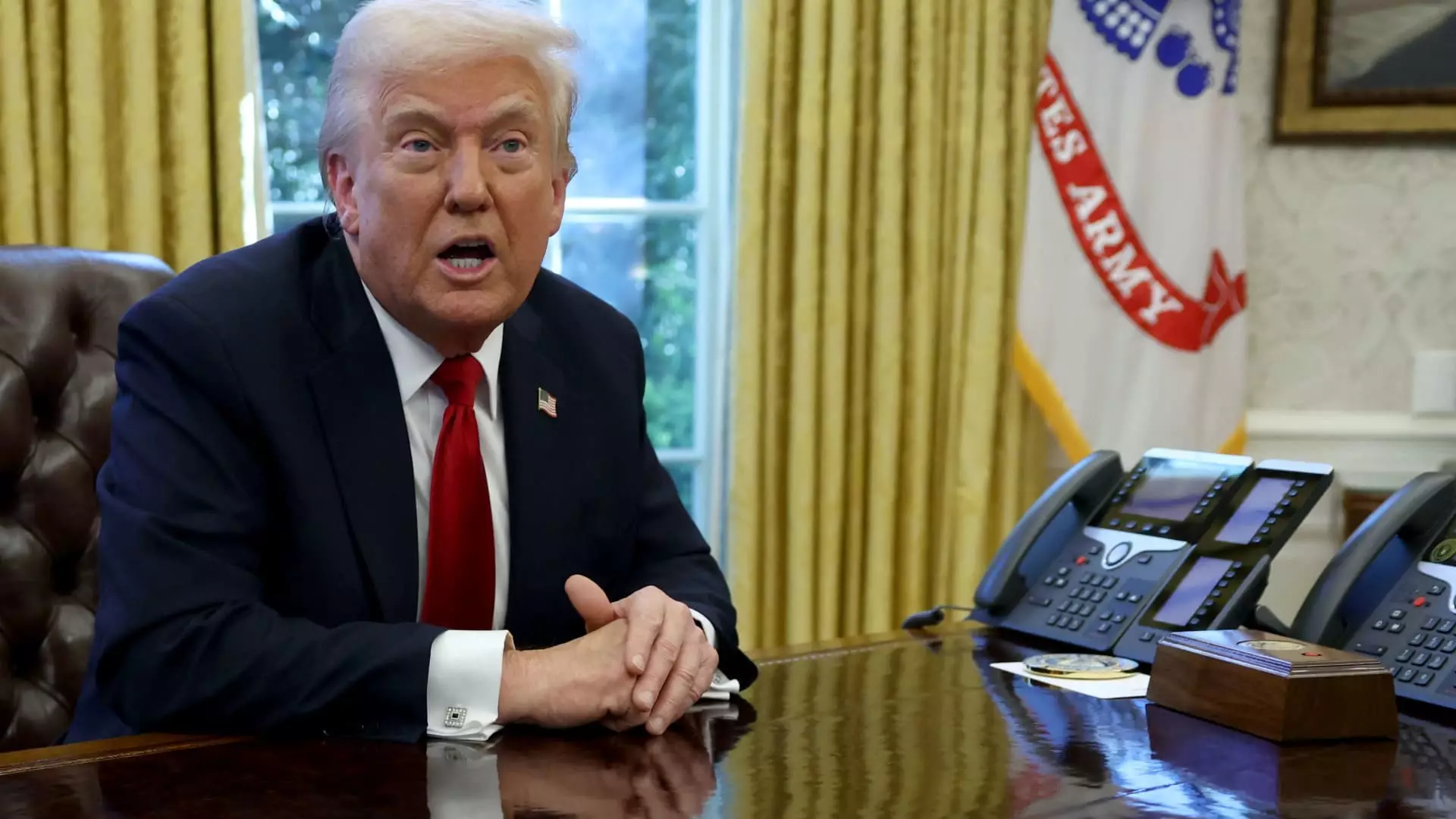The recent announcement from President Donald Trump regarding a 25% tariff on all foreign-made cars has ignited a flurry of dialogue and controversy across the political spectrum. With Trump positioning this as a move to bolster American manufacturing, the implications extend beyond mere economics; they touch on innovation, global trade relationships, and the unpredictable nature of domestic markets. The president’s alliance with entrepreneurial titan Elon Musk is especially telling, as Musk’s dual role as CEO of Tesla and a senior advisor to Trump complicates the narrative. At any rate, this maneuver could reconfigure the automotive landscape in ways we have yet to fully comprehend.
Musk’s Uneasy Position
Elon Musk is a man who has achieved unparalleled success in the automotive and space industries. However, his relationship with Trump is fraught with tension and uncertainty. Trump’s assertion that Musk may have a “conflict” in commenting on tariffs begs the question: does Musk’s success and financial contributions to Trump skew his perspective, or are his insights genuine? The inherent conflict creates a miasma of distrust that clouds potential innovations in the electric vehicle sector. Despite Musk’s somewhat ambiguous position, one cannot ignore that his companies, particularly Tesla, hinge on global supply chains that may be jeopardized by these new tariffs.
Economic Implications: Flaws in the Logic
The reasoning behind these tariffs appears flawed for several reasons. First, while the intention may be to incentivize local manufacturing, the reality is that many essential components of cars, including those by Tesla, are sourced internationally. This means that increasing tariffs could paradoxically compel automakers to pass those costs onto consumers, ultimately raising prices on American-made vehicles rather than making them more competitive. Trump’s assertion that the tariffs will be “net neutral or may be good” overlooks the fundamental intricacies of supply chains that companies like Tesla navigate daily.
The Irony of Nationalism in an Interconnected World
In an era marked by globalization, it is disheartening to observe the stark nationalism that manifests through policies such as these tariffs. While there is undeniable merit in supporting local jobs and industries, one must not negate the advantages derived from international collaboration and trade. It would be naive to assume that isolationist policies could fortify American industry without inciting backlash from global partners. Tariffs can lead to retaliatory measures that would further alienate potential consumers and business partners abroad, resulting in a cyclical detriment to the very industry Trump aims to protect.
Competition Intensifies: Can Tesla Keep Up?
The dynamics within the electric vehicle market are changing at lightning speed. Tesla, once the trailblazer in the space, now faces a nexus of fierce competition from established automakers and rising companies alike, particularly the formidable BYD in China. Trump’s tariffs may provide a temporary boon to Tesla, but they inevitably stifle the agility required for innovation. If domestic automakers are burdened with increased production costs, their ability to invest in new technologies diminishes, and consumers are left with fewer choices and potentially higher prices. This creates an unsustainable market where innovation may be sacrificed at the altar of protectionist policies.
Stock Market Reaction: A Cautionary Indicator
Investors don’t lie, and the immediate market reaction illustrates disappointment. Shares of significant automotive companies saw declines post-announcement, indicating a collective unease about the future. Investors thrive on predictability, and the uncertainty from tariff policies incites anxiety regarding long-term profitability. The stock market’s response invariably reflects the sentiments of influential stakeholders who see tariffs as an impediment to progressive growth. The focus should be on technological advancement and efficiency, not on erecting barriers that stifle progress under the guise of protectionism.
While the intention behind President Trump’s tariffs may resonate with the desire to fortify American manufacturing, the broader implications are far more complicated. As players like Musk and Tesla maneuver through this tumultuous political landscape, the real question looms—will these tariffs bolster American innovation or choke it out? The coming months will be critical in deciding whether we are heading towards a renaissance of domestic manufacturing or a regression into isolationist practices that benefit none but the very few at the top.

